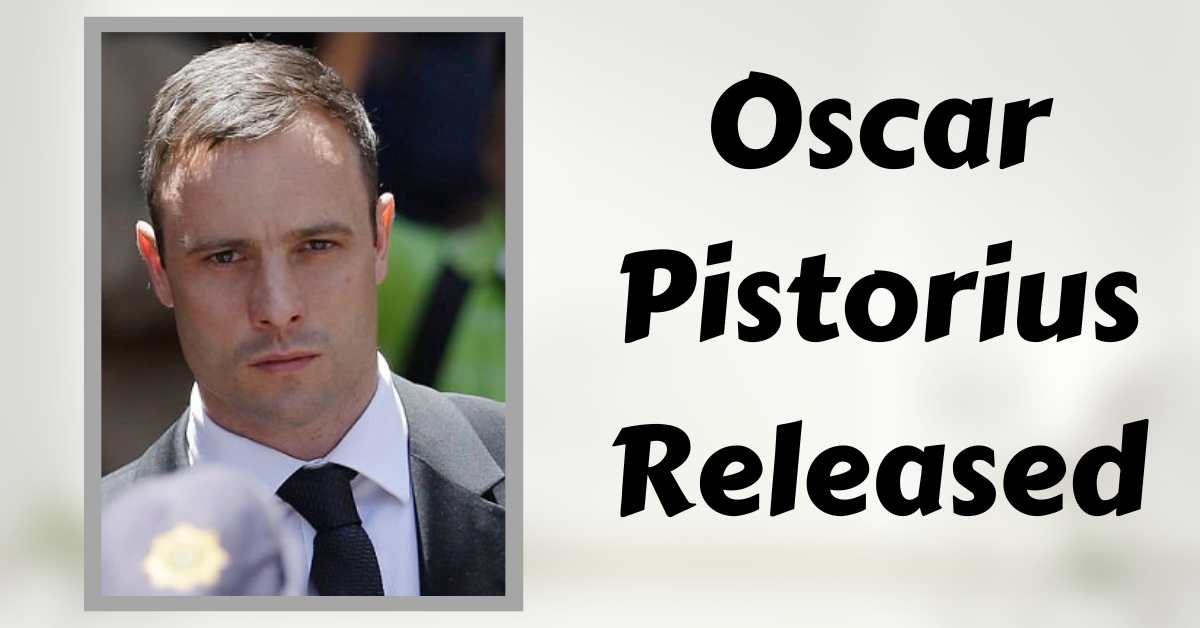As word of his release spreads, Oscar Pistorius, the South African Paralympic champion who was once hailed for shattering barriers, is once again in the news. The release of Pistorius, who served time for shooting his girlfriend Reeva Steenkamp to death in 2013, is a significant turning point in his contentious legal career.
Known for his prosthetic limbs, the athlete was dubbed the “Blade Runner” by the media throughout his trial, which led to a manslaughter conviction. Questions and conversations about justice, rehabilitation, and accountability follow Pistorius as he leaves jail and returns to a transformed society.
Oscar Pistorius Released
Tragedy struck; officials in South Africa announced Oscar Pistorius’s parole release on Friday, almost eleven years after the Valentine’s Day murder of his fiancée. Pistorius is an Olympic sprinter.
Near Pretoria, Pistorius, 37, departed from Atteridgeville Correctional Centre to embark on a new life of monitored freedom, where he will be required to get authorization from authorities for numerous fundamental occurrences.
The South African Department of Correctional Services said in a statement it was “able to confirm that Oscar Pistorius is a parolee, effectively from 5 January 2024. He has been accepted into the Community Corrections system and is currently residing at home.”
There were no more details about his release from the department.
Since late 2014, Pistorius has been incarcerated for the shooting death of his girlfriend, 29-year-old model and recent law school graduate Reeva Steenkamp, on February 14, 2013.
Reeva’s mother, June Steenkamp, stated in a statement that Pistorius’s release confirmed her confidence in the South African legal system. Still, she also mentioned that the family had never accepted her passing.
“Now, almost 11 years later, the pain is still raw and real, and my dear late husband Barry and I have never been able to come to terms with Reeva’s death or the way she died.”
“There can never be justice if your loved one is never coming back, and no amount of time served will bring Reeva back,” she said.
Pistorius’s release is contingent upon his participation in “anger management courses and programs on gender-based violence,” as disclosed by Steenkamp in her statement.
Here you can also check our recent articles:
- What Happened to Renee Nelson Fox 10? A News Anchor Departure Leaves an Imprint!
- Exciting Updates on Honkai: Star Rail PS5 Release Date & Technical Test News!
Prior to receiving a sentence of almost 13½ years in prison for killing Steenkamp, Pistorius was placed under house arrest for a while amid the protracted appeals process in his case. In November, he was granted parole.
Steenkamp was shot dead by Pistorius when he was trapped in his Pretoria home’s bathroom. He said that since he thought she was an intruder hiding in his bathroom, he shot her in self-defense.
Pistorius and Steenkamp got into a late-night altercation, according to the prosecution, during which Pistorius used a 9 millimeter pistol to express his aggression.
Pistorius was freed over four months after the father of the victim, 80-year-old Barry Steenkamp, passed away. During his final years, Barry dedicated his life to keeping his daughter’s name in the public domain and her killer behind jail.
As participants in South Africa’s restorative justice initiative, he and Pistorius first met in 2022. He developed into a top sprinter by wearing carbon-fiber prosthesis in the J form. Dubbed the “Blade Runner,” he competed in the Paralympics in 2004 and 2008 and won several gold medals.
His prominence peaked during the London Olympics in 2012. Despite not winning a medal, Pistorius gained admirers worldwide by making it to the 400-meter semifinals. He finished his last heat with a time of 46.54 seconds. The gold medal was won by the Grenada sprinter Kirani James, who finished in 43.94 seconds during the finals.
